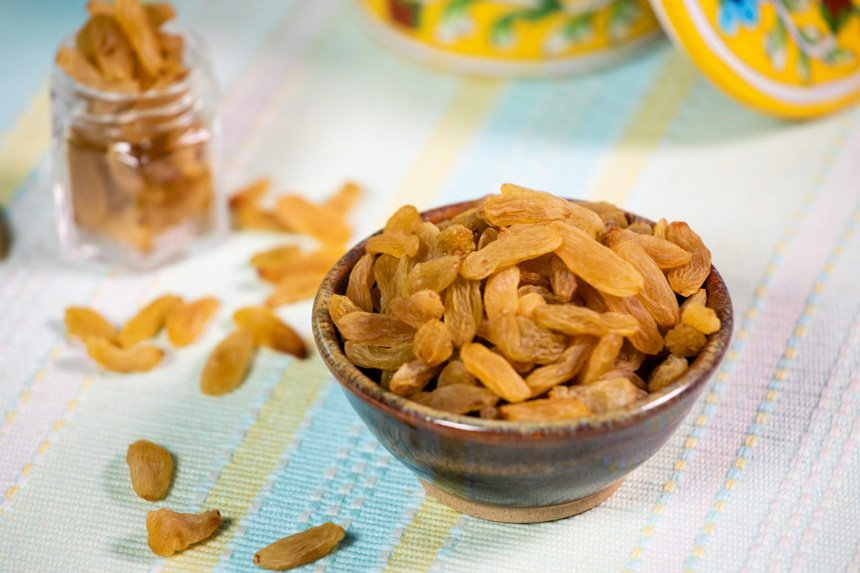Raisins

Raisins are packed with B vitamins, potassium, and iron, offering substantial nutritional value. However, their high purine content, about 100 milligrams per 100 grams, means they should be eaten in moderation by those concerned about gout. The natural sweetness and health benefits of raisins make them a popular snack, but their impact on uric acid levels requires careful consumption for those managing gout.
Including raisins in a diet offers health benefits, but for individuals with gout, moderation is key. This approach ensures that the nutritional advantages of raisins can be enjoyed without significantly affecting uric acid levels.
While the foods listed above are high in purines and may contribute to increased uric acid levels, they also offer valuable nutrients essential for a balanced diet. The key is moderation, allowing for occasional consumption or controlled portions within a healthy diet. For those at risk of gout or managing uric acid levels, consulting healthcare professionals or nutritionists can provide personalized dietary strategies. These tailored plans can suggest suitable substitutes or recommend portion control to manage uric acid levels effectively. By adopting a personalized nutritional approach, individuals can enjoy a diverse array of foods while minimizing the risks associated with high purine intake, promoting overall health and well-being.





